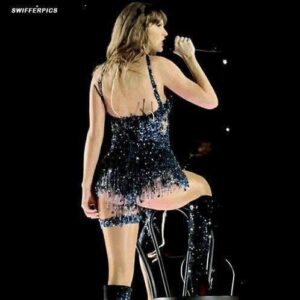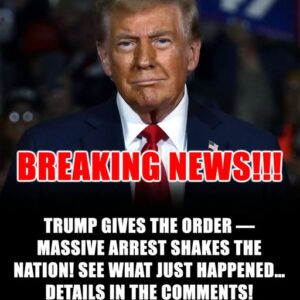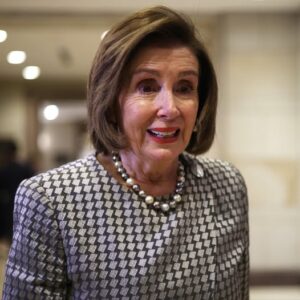President Donald Trump has once again injected himself into New York City politics — this time with a mix of endorsement, warning, and outright threat that has turned the city’s upcoming mayoral election into a national spectacle. After decades of calling New York home, Trump has become a central, if deeply divisive, figure in its local political drama.
The election, scheduled for November 4, pits former New York governor Andrew Cuomo, now running as an independent with centrist backing, against Democratic frontrunner Zohran Mamdani, a progressive state assemblyman from Queens. Republican Curtis Sliwa, though a familiar face in city politics, trails far behind in recent polling, leaving the race effectively between Cuomo and Mamdani — and, increasingly, Trump’s influence hovering over both.
Trump’s Sudden Entry into the Race
In a move that shocked even his own supporters, Trump announced his endorsement of Andrew Cuomo over the weekend. The two men, who have often clashed publicly in the past, are now united by what Trump calls “a mission to save New York from communism.”
Trump’s post on Truth Social set off a political firestorm. “Whether you personally like Andrew Cuomo or not, you really have no choice,” Trump wrote. “You must vote for him and hope he does a fantastic job. He is capable of it, but Mamdani is not!”
He went even further, adding that anyone voting for Sliwa — the longtime Guardian Angels founder and conservative radio personality — would be “throwing away their vote and helping the communists take over the city.”
But it was Trump’s next statement that made national headlines:
“If Communist Candidate Zohran Mamdani wins the Election for Mayor of New York City, it is highly unlikely that I will be contributing Federal Funds, other than the very minimum as required, to my beloved first home.”
The Threat Heard Across the City
The former president, who maintains his residence in Florida but frequently refers to New York as his “first home,” continued his post with language that drew immediate condemnation from Democrats and even some Republicans.
“Because of the fact that, as a Communist, this once great City has ZERO chance of success, or even survival! It can only get worse with a Communist at the helm, and I don’t want to send, as President, good money after bad,” Trump wrote.
“It is my obligation to run the Nation, and it is my strong conviction that New York City will be a Complete and Total Economic and Social Disaster should Mamdani win.”
Trump’s remarks were quickly shared across social media, drawing both praise from his MAGA base and outrage from critics who accused him of attempting to coerce voters through economic threats. Legal experts also noted that such a move — cutting federal funding to punish a city for its election results — would likely be unconstitutional.
A Renewed Rivalry and a Political Gamble
Trump’s endorsement of Andrew Cuomo is as politically intriguing as it is unexpected. The two men have publicly sparred for years, especially during the COVID-19 pandemic, when Cuomo — then New York’s governor — frequently blasted Trump’s federal response. Yet behind the scenes, both share deep ties to New York’s political and real estate worlds.
For Cuomo, Trump’s endorsement presents a dilemma: it could win over conservative Democrats and moderates anxious about crime and cost of living, but it risks alienating progressives who still view Trump as the enemy.
Political analysts say Trump’s involvement could actually benefit Mamdani, whose campaign thrives on casting himself as the anti-establishment underdog fighting corporate and political elites.
“Trump’s endorsement is a double-edged sword,” said political strategist Marjorie Adams, speaking to NY1. “In New York City, Trump’s name still carries enormous baggage. Associating Cuomo with Trump could turn off exactly the kind of voters he needs to win over — especially younger, left-leaning residents.”
The Communist Label
This is not the first time Trump has labeled Zohran Mamdani, a Democratic Socialist aligned with the progressive movement, a “communist.” In June, during an interview with Fox News, Trump dismissed Mamdani’s candidacy outright, calling him “a pure communist” who would “destroy the city.”
“Let’s say this – if he does get in, I’m going to be president, and he’s going to have to do the right thing, or they’re not getting any money,” Trump told the network. “He’s got to do the right thing or they’re not getting any money.”
Mamdani, for his part, has rejected the label, describing himself as a progressive who supports “economic justice, not communism.”
“I don’t think that we should have billionaires,” Mamdani said earlier this year, adding that his campaign’s goal is to ensure “every New Yorker has housing, healthcare, and dignity.”
He has also called for raising taxes on the wealthiest residents, expanding rent protections, and investing in social programs — policies that have earned him passionate support among working-class voters and disdain from Wall Street and conservative circles.
Mamdani Strikes Back
At a press event Monday, Mamdani responded directly to Trump’s threat to cut federal funding, dismissing it as “a desperate attempt to intimidate New Yorkers.”
“The MAGA movement’s embrace of Andrew Cuomo is reflective of Donald Trump’s understanding that this would be the best mayor for him,” Mamdani said. “Not the best mayor for New York City, not the best mayor for New Yorkers, but the best mayor for Donald Trump and his administration.”
He accused both Trump and Cuomo of “playing politics with people’s lives” and vowed to continue fighting for “a New York that serves the people, not billionaires or political dynasties.”
Cuomo’s Calculated Silence
For now, Andrew Cuomo has avoided directly responding to Trump’s endorsement or the ensuing controversy. His campaign released only a brief statement emphasizing that Cuomo “welcomes support from anyone who believes in pragmatic leadership and rebuilding New York’s future.”
Behind the scenes, however, Cuomo’s advisers are reportedly divided over whether to embrace or distance themselves from Trump’s support. One insider, speaking anonymously, told Politico: “We didn’t ask for this endorsement, and we’re not sure it helps us. But you can’t ignore it.”
The Stakes for New York City
The stakes could not be higher. With housing costs soaring, crime rates fluctuating, and post-pandemic recovery uneven across boroughs, the next mayor will inherit a city in flux. The rhetoric surrounding this race — fueled by Trump’s intrusion — has only amplified tensions among an already polarized electorate.
Mamdani’s campaign argues that Trump’s threat underscores precisely what’s wrong with politics today: the idea that cities and citizens can be punished for democratic choices. “New Yorkers will not be bullied into submission,” Mamdani told reporters.
Trump’s supporters, meanwhile, see the situation differently. On conservative talk shows and online forums, many have cheered Trump’s “hard line” against what they call “radical socialism in America’s biggest city.”
Political Analysts Weigh In
According to a new Marist poll, released after Trump’s endorsement, the race has tightened. Cuomo holds 42%, Mamdani 39%, and Sliwa 11%, with 8% undecided. The poll also found that 58% of New Yorkers disapprove of Trump’s intervention, but among independents, 32% said it made them more likely to support Cuomo.
“Trump’s comments might move the needle slightly, but they also energize progressives,” said political analyst Dr. Eli Rosenfeld. “In a city as liberal as New York, calling someone a communist doesn’t always hurt them — it can actually make them a hero to their base.”
A City Once Again Divided
New York City, which gave Trump his fame but largely rejected his politics, now finds itself caught in his orbit once again. For many, his latest statements are a reminder of just how deeply intertwined he remains with the city’s identity — and its divisions.
As election day approaches, both Cuomo and Mamdani are racing to define the future of America’s largest city — one promising stability and experience, the other championing transformation and reform. And hovering over them both is Donald Trump, the man who once built skyscrapers here, and now threatens to reshape its politics from afar.
Whether his warning changes the outcome or simply inflames the city’s long-standing tensions remains to be seen. But one thing is certain: in the city that made Donald Trump famous, his shadow still looms large — and his words still have the power to ignite a firestorm.





